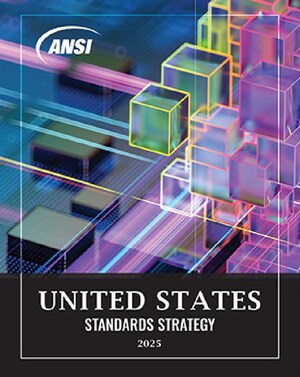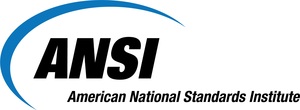
NEW YORK, April 1, 2020 /PRNewswire/ -- The American National Standards Institute (ANSI) released today for public review and comment a working draft of the Standardization Roadmap for Unmanned Aircraft Systems (Version 2.0) being developed by the Institute's Unmanned Aircraft Systems Standardization Collaborative (UASSC). Working groups have been developing the draft for several months, following a kickoff meeting held on September 12, 2019.
This request specifically invites comments that represent critical revisions and/or needed clarifications on what is presented in the document. While all comments are welcome, the UASSC reserves the right to hold disposition of comments in reserve for a future iteration of the document if they cannot be addressed within the time available. This might include, for example, comments on the document's organization, or issues not addressed. Comments on the draft roadmap may be submitted to [email protected] by close of business on Friday, May 1, 2020. Use of the comment form (see below) is required to better manage and collate comments. The UASSC working groups are currently on hiatus and will reconvene in May to address the comments submitted and finalize the document for publication by the end of June 2020.
The draft roadmap and related materials may be downloaded as follows:
- Working Draft Standardization Roadmap for Unmanned Aircraft Systems V2, (356 pp., 8 MB)
- Comment Form. When accessing the comment form, you may be prompted for credentials; just hit "Cancel" one or more times to download and open the document.
- Instructions for Using Comment Form
The UASSC's mission is to coordinate and accelerate the development of the standards and conformity assessment programs needed to facilitate the safe integration of unmanned aircraft systems (UAS), or drones, into the national airspace system, with international coordination and adaptability. It is focused on the use of UAS in civil, commercial, and public safety applications. The roadmap identifies existing standards and standards in development, defines where gaps exist, and recommends additional work that is needed, including a timeline for its completion and organizations that can perform the work.
Ultimately, the document is meant to help clarify the current standardization landscape, minimize duplication of effort among standards development organizations (SDOs), help inform standards participation, and facilitate the growth of the UAS market. The UASSC itself is not developing standards.
Issues addressed in the roadmap encompass airworthiness; flight operations; personnel training, qualifications, and certification; infrastructure inspections, environmental applications, commercial services, workplace safety, and public safety operations. The document also includes brief introductions to the UAS activities of the Federal Aviation Administration (FAA), other U.S. federal government agencies, SDOs, and industry.
Specific goals for Version 2 include expanding the content to include topics such as spectrum, urban air mobility, and recreational operations; engaging subject matter experts not previously involved; identifying potentially overlooked gaps; tracking progress by standards developers to address the roadmap's recommendations; reviewing priorities; and otherwise incorporating feedback.
"The UASSC has continued to make considerable progress over the past year to identify the standards needed to support the increasing use of UAS for civil, commercial, and public safety operations," said ANSI president and CEO S. Joe Bhatia. "At this time we are inviting comments from the broad community of stakeholders to inform the further development of the document."
ANSI's facilitation of the UASSC is supported in part by contributions from the FAA, the U.S. Department of Homeland Security Science and Technology Directorate, ASTM International, and others.
For more information, visit www.ansi.org/uassc.
About ANSI
The American National Standards Institute (ANSI) is a private non-profit organization whose mission is to enhance U.S. global competitiveness and the American quality of life by promoting, facilitating, and safeguarding the integrity of the voluntary standardization and conformity assessment system. Its membership is made up of businesses, professional societies and trade associations, standards developers, government agencies, and consumer and labor organizations. ANSI represents and serves the diverse interests of more than 270,000 companies and organizations and 30 million professionals worldwide.
The Institute is the official U.S. representative to the International Organization for Standardization (ISO) and, via the U.S. National Committee, the International Electrotechnical Commission (IEC). For more information, visit www.ansi.org.
SOURCE American National Standards Institute







Share this article